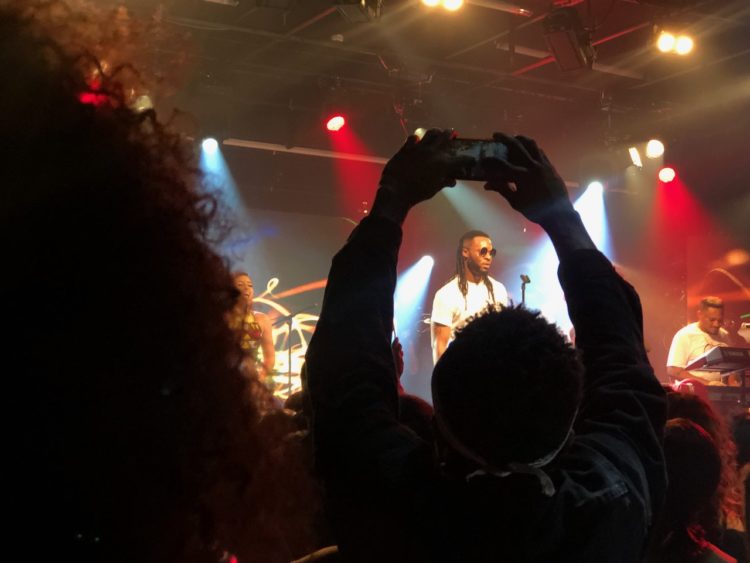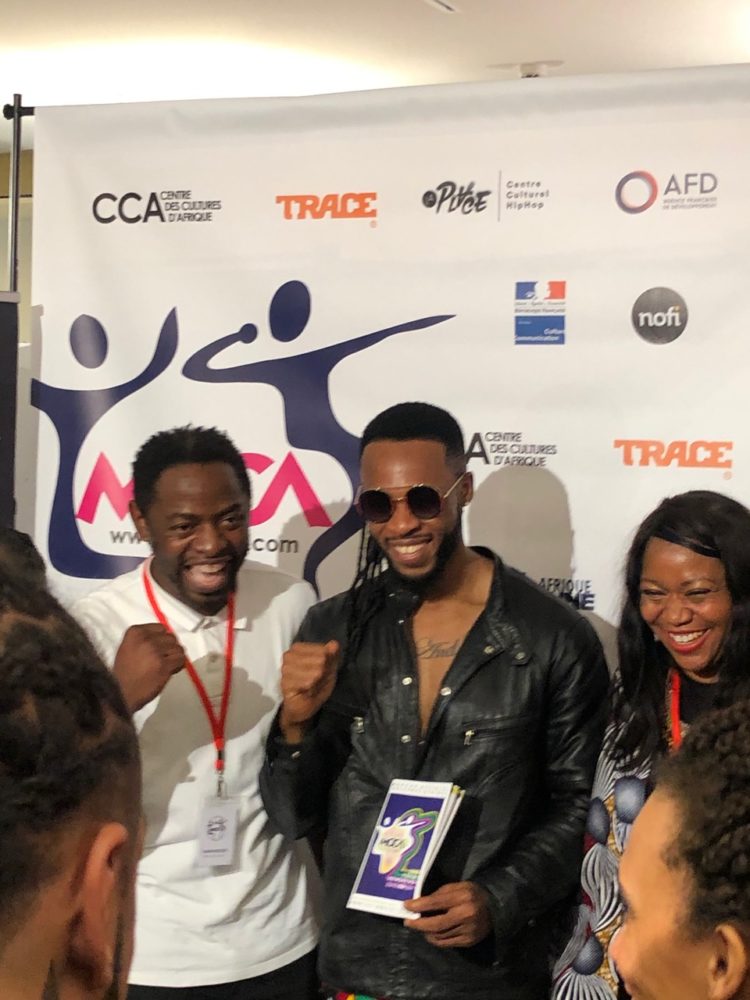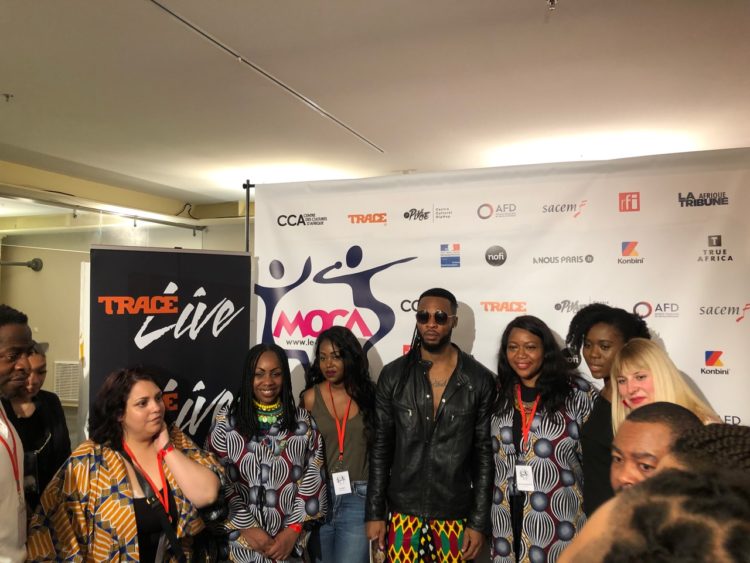Over the last five years we have seen an influx of African music and the sound has evolved to include hits that chart all over the world. This African music renaissance is partly due to the merits of Nigerian artists such as Wizkid, Davido, Yemi Alade and Burna Boy.
A lot of these artists have become household names in Africa, but some are coming with heavy Western ties. For many Africans, the privilege of carrying a European passport and being intercontinental may not be so apparent, so where does this window of opportunity lie for Africans themselves? How can they break into the music, film and art industries. Will they be able to make connections and gain the same level of fame as artists from other continents? These are the questions I brought with me as I started my journey in Paris, which might just be the next big place for Africans who want to make it big.
Earlier this summer, I attended the MOCA festival in Paris. Billed as “the rendez-vous of African cultures and creativity,” it’s an event designed to support the exact people who get taken advantage of by the big music moguls. In his busy schedule of organising, running around and speaking, Alain Bidjeck, the festival’s founder sat with me and answered a few questions about his creation, which has become one of the biggest African networking events.
I want to know how this all started. I want to pick you brain about where you see this going in the future and how you envision this for all Africans.
It started four years ago with a group of artists and promoters we were all from the African diaspora and were talking about the situation concerning us and our talent and how to promote her (Africa) globally and then we essentially decided to make a conference which lasted a month…
Oh wow…
Yeah it was over a month. It was crazy we had about 1000 events, we had cinema, fashion, we did partnerships with venues.
We had labels come, concert venues, theatres, we did this for two years and we decided that this was too much so we tried to do just two days. After the first two years we realised it was a lot of work and just too big, then last year I was in Africa at a conference. I was producing the African Forum in Lagos and I was also in South Africa and Togo and at the end of the tour I said OK we can experiment with other ideas and do a new format of three days with a conference, some networking and in the evening, a live music concert.
Now we have a catchy event. Now that we’ve done MOCA, we want to build bridges between Africa and the diaspora, the UK diaspora, the diaspora in Europe, America. We are young creatives based in Europe, in Douala, we also have people from Rwanda, Young Paris is signed to Roc Nation, Afrotonix is based in Canada, and we have professionals coming from Dakar. Here we are, with all these people, it’s crazy.
We want to build those bridges and work together. We all come from Africa and now we’re thinking about how we can create links around the world. We have networking, we have Facebook, Instagram, we are all connected but with the festival we can get in touch and we can create. In the festival, we now have songwriting sessions too.
Oh yeah, I went there earlier.
We have three days in the studio with beatmakers, with directors, producers and artists. They don’t really know each other because we have Young Paris from the US, we have people from Congo, from Benin, from France and Belgium, and they’re here for two or three days and they’re creating. New songs maybe…
Maybe they’ll meet some new artists to work with too.
Exactly, it’s good for connections, it’s good for creating something new. Considering that MOCA is, let’s say, a laboratory, we have to connect and experiment with the new African way of thinking, the new African culture, the new African vibes and this is in the present and we hope that in the future…
How do you think you’ll be able to attract people from other countries? Like I guess the UK, America or any places like that?
OK, so for now we are not really connected with the media around the world. We have TRACE, and the first international partnership we made was with TRUE Africa and this being the first, we want to establish more and build more bridges with, maybe, OkayAfrica and maybe also with networks. That’s why we all have to connect with each other, you know, so that we can create more.
I was in Lagos last month for a festival and I was talking with Taiye, Yemi Alade’s manager, and he said to me “Oh Alain”. I felt that he was very frustrated because Yemi is so famous in Nigeria, in Africa, in the diaspora, but she wants more, she wants the world. It’s normal because she’s a huge artist on stage, she’s got thousands of fans. It’s crazy! For me, Beyoncé and Yemi Alade is the same.
(Zina looks at him like wtf)
With the important shows… because she is a performer, she’s a good, good, good singer… she’s huge and she deserves it. But how can she get stronger in the international market? It’s a huge problem for Nigerian artists. But I know this year we had Mr Eazi and Burna Boy in Cochella. They want to be more successful in France, around the world, they want to be present in festivals, they want to have more concerts and go to someone who says yes, we can get you there, we have contacts in all these places.
I think it’s great. It’s amazing what you’re doing. Obviously, next year is going to be your fifth year. What are you hoping for the next year? Lol, this year’s edition is not even finished yet.
For next year, we want a bigger event in a new venue. This is nice but if you look at the event we had yesterday, many people were stuck outside because it’s a small venue and they are very strict with the number of people who can attend. The relationship between security and us is somewhat stressful. We want stronger video content to promote the programme, and we want artists who are bigger in the media.
My guy in Nigeria said that we need to include more Nigerian artists. This year we had Flavour, next year we’ll have someone else. There are more artists there… they are also watching the event. We have a stronger social network and a bigger social connection and they are all watching us and watching the show and they will want to come to the event next year.
Would you ever consider doing a MOCA abroad, like in the US, UK, South Africa, Nigeria, Ivory Coast?
Why not? We’re very open about it. Definitely, it is all about partnerships and the networks we have. For me it’s better to bring MOCA to Africa. Because Africa is modern and that would be very interesting, we would have people from the diaspora, from all over the world, we would make them create in a space over three days and do conferences, workshops, we would teach them the creative process in the festival.
Have you heard of Homecoming? It’s an event with Skepta.
Oh, I have heard of it and I love Skepta.
They’re doing something very similar. They’re trying to get people to see Africa in a positive light and show the new talent and the amazing people that are coming through so it might be something you guys could work on together and maybe collaborate.
I’d like to be more connected with all of my brothers in the US, the UK, Ireland, Canada.
How did you make your connections?
It was my job. I worked in media, I produced festivals, I managed artists, then I built up a huge network and I helped a lot of people in the business and when I hooked someone up they would be like, oh thanks, great! And now I work with the majors in the music industry and many people know me and they want to be on this because they know that I’m good. I’m becoming that person that they think, OK cool he’s legit, people can come in here and make a connection.
When I try to do something, anything, I make sure it’s good. I know how to build those kinds of things.



